Profile
Gliday Yuka
Candidate CV questions (extra)
-
Education:
Dual Master of Science (Hons): Biotechnology and Zoology, Punjabi University and Guru Nanak Dev University, India (First Class honors) Bachelor of Science (Hons): Biology, Pwani University, Kenya (Second Class Upper Division)
-
Qualifications:
degrees in Biotechnology and Zoology, and have expertise in bioinformatics, computational biology, and advanced laboratory techniques. my experience spans wildlife conservation, ecological research, machine learning for agriculture, antimicrobial and antioxidant research, and project management
-
Work History:
Biotech Coexistence Project Assistant at Save The Elephants, where i lead research in wildlife conservation, community engagement, and data analysis. As a Research Associate at NETA, you conducted transcriptomic studies on epilepsy. I am also the founder of Shamba AI, developing machine learning applications for biotechnology and sustainable agriculture.
-
Current Job:
Biotech Coexistence Project Assistant, Save The Elephants (STE) Focused on wildlife conservation and population health monitoring using computational analysis and bioinformatics. Led and supported research on elephant nutrition, human-elephant coexistence, community engagement, and field data management.
-
Employer:
Save The Elephants
NETA Discovery- Neuronal Epileptotranscriptomics Advancements
-
Favourite thing to do in my job: My favourite thing to do in my job is solving complex problems—whether that’s analyzing data to uncover new insights, collaborating with a team on a challenging project, or finding innovative solutions that make a real impact in conservation and research. Every day brings something new to learn, and I really enjoy making a difference through science and teamwork.
-
About Me
Passionate about science and conservation, I specialize in biotechnology, data analysis, and innovative solutions for real-world challenges. I enjoy working with diverse teams, tackling complex problems, and making a positive impact on people and the environment.
-
Read more
Hi, I’m Gliday Yuka! I live in Kenya, where I work at the intersection of science, conservation, and technology. My work takes me from computer labs to the savannah, where I use biotechnology and data analysis to support wildlife conservation and sustainable agriculture. I have dual Master’s degrees in Biotechnology and Zoology, and I’m passionate about protecting our planet’s biodiversity.Outside of work, I love exploring the outdoors and learning about different cultures and environments—Kenya is perfect for both! I am a bit of a data geek: I enjoy coding, analyzing new datasets, and experimenting with machine learning. When I’m not doing research or writing, you might find me chatting with friends, trying out new recipes (my favorite food is classic Kenyan pilau), or catching up on wildlife documentaries.Fun fact: I’m a big fan of science communication and believe that everyone—no matter their background—should be able to understand and enjoy science. I spend time volunteering in local schools, helping students get excited about science and conservation.On the lighter side, I thrive on teamwork and am always up for a challenge, whether it’s solving a tricky research problem or organizing a community conservation event. I don’t have any goldfish (yet!), but I do share my home with some very persistent monkeys who visit my windows almost every morning.If you’re into coding, nature, sustainable development, or just want to know more about elephants or biotech, I’m always happy to chat!
-
My work
I use biotechnology and data analysis to support wildlife conservation and sustainable agriculture, solving real-world problems and helping protect the environment.
-
Read more
My work combines biotechnology, data science, and conservation to help solve real-world challenges. As a Biotech Coexistence Project Assistant at Save The Elephants, I focus on developing and applying scientific solutions to promote wildlife conservation—especially finding ways for people and elephants to coexist peacefully. This involves everything from conducting field research and collecting ecological data, to analyzing trends using advanced computational tools.In addition, I work as a Research Associate in neuroscience, where I support research on genetic markers in epilepsy. I also founded Shamba AI, a platform that leverages machine learning to improve sustainable agriculture and optimize crop production for local farmers.A typical day can vary wildly: some days I’m coding or analyzing datasets in the lab, other days I’m working with communities in remote areas, managing field projects, or testing new ideas with a multidisciplinary team. I love that my role allows me to bridge the gap between science, technology, and society, making a positive impact both for people and the environment. For me, the most satisfying part is seeing how research can be turned into practical solutions that improve lives and protect nature for future generations.
-
My Typical Day
My typical day balances fieldwork and data analysis—reviewing research, collaborating with my team, conducting wildlife monitoring or community outreach, and working on reports or new ideas. I enjoy the variety and teamwork that each day brings.
-
Read more
My typical day is a mix of fieldwork and data analysis. In the morning, I often review and organize research data or prepare for meetings with my team. Some days involve heading out into the field to monitor wildlife, collect samples, or engage with local communities on conservation projects. In the afternoons, I usually focus on analyzing data, writing reports, or developing new ideas with colleagues. No two days are exactly the same, and I enjoy the balance of hands-on research, problem-solving, and teamwork that my job brings.
-
What I'd do with the money
I would use the money to support science education and conservation outreach, creating hands-on learning opportunities for students—especially in underserved communities—to inspire future scientists and conservationists.
-
Read more
I would use it to support science education and conservation outreach in local schools and communities. I’d organize interactive workshops, provide learning materials, and create opportunities for students—especially those in underserved areas—to get hands-on experience with science and technology. My goal would be to inspire the next generation of scientists and conservationists, helping them see how science can make a real difference in their lives and for the environment.
-
My Interview
-
How would you describe yourself in 3 words?
Driven, innovative, interdisciplinary
What was your favourite subject at school?
Biology
What did you want to be after you left school?
After I left school, I wanted to become a scientist—specifically someone working at the intersection of biology, conservation, and technology, using research to solve real-world challenges in health and the environment
Were you ever in trouble at school?
I wasn’t often in trouble at school. I was usually focused on my studies and stayed engaged in science-related activities and projects. However, like most students, I had the occasional minor mishap—mostly for being too curious or asking too many questions in class
If you weren't a scientist, what would you be?
I think I’d want to be a writer—someone who explores stories, shares ideas, and connects with people through words.
Who is your favourite singer or band?
Adele, Coldplay, or Ed Sheeran.
What's your favourite food?
Pizza
What is the most fun thing you've done?
One of the most fun things I’ve been part of is helping organize a conservation education trip for students to Tsavo East National Park. The kids got to see elephants, giraffes, zebras, and many other animals in their natural habitat for the very first time—everyone was so excited, and we all learned a lot about wildlife and the environment. Seeing their curiosity and joy made it a truly memorable experience.
If you had 3 wishes for yourself what would they be? - be honest!
The ability to keep learning and growing, so I could always help others in new and better ways. Meaningful, supportive connections with people—because relationships truly make life richer. The chance to explore the world and experience different cultures and ideas, bringing more understanding and inspiration to what I do.
Tell us a joke.
Why did the computer go to the doctor? Because it had a virus! 😄
-
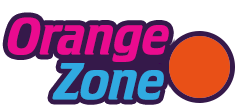
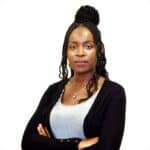
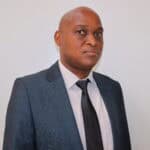
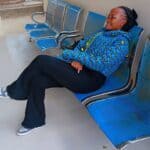
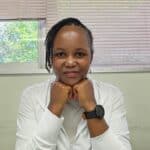
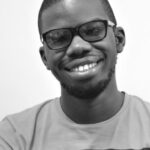

My Comments